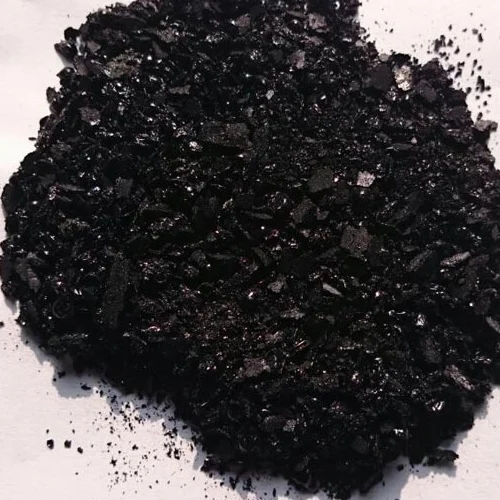Suppliers of Indigo Natural Dye for Eco-friendly and Sustainable Coloring Materials

indigo natural color suppliers. This not only benefits the environment but also the health of workers in the textile industry who are often exposed to harmful chemicals during the dyeing process. Furthermore, natural indigo dye produces rich, deep shades of blue that are highly sought after in the fashion industry. Its unique and vibrant color is a favorite among designers and consumers looking for sustainable and ethical options. Indigo natural color suppliers are also committed to promoting fair trade practices and supporting local communities. By sourcing their indigo leaves from small-scale farmers, these suppliers help to create economic opportunities for rural communities and preserve traditional farming practices. In conclusion, the rise of natural indigo dye in the textile industry has brought about a shift towards more sustainable and environmentally-friendly practices. Indigo natural color suppliers play a critical role in meeting the growing demand for natural dyes while promoting ethical and fair trade practices. Their commitment to quality, sustainability, and community support has made them valuable partners for designers and manufacturers looking to create beautiful and eco-friendly products.
-
The Timeless Art of Denim Indigo Dye
NewsJul.01,2025
-
The Rise of Sulfur Dyed Denim
NewsJul.01,2025
-
The Rich Revival of the Best Indigo Dye
NewsJul.01,2025
-
The Enduring Strength of Sulphur Black
NewsJul.01,2025
-
The Ancient Art of Chinese Indigo Dye
NewsJul.01,2025
-
Industry Power of Indigo
NewsJul.01,2025
-
Black Sulfur is Leading the Next Wave
NewsJul.01,2025

Sulphur Black
1.Name: sulphur black; Sulfur Black; Sulphur Black 1;
2.Structure formula:
3.Molecule formula: C6H4N2O5
4.CAS No.: 1326-82-5
5.HS code: 32041911
6.Product specification:Appearance:black phosphorus flakes; black liquid

Bromo Indigo; Vat Bromo-Indigo; C.I.Vat Blue 5
1.Name: Bromo indigo; Vat bromo-indigo; C.I.Vat blue 5;
2.Structure formula:
3.Molecule formula: C16H6Br4N2O2
4.CAS No.: 2475-31-2
5.HS code: 3204151000 6.Major usage and instruction: Be mainly used to dye cotton fabrics.

Indigo Blue Vat Blue
1.Name: indigo blue,vat blue 1,
2.Structure formula:
3.Molecule formula: C16H10N2O2
4.. CAS No.: 482-89-3
5.Molecule weight: 262.62
6.HS code: 3204151000
7.Major usage and instruction: Be mainly used to dye cotton fabrics.

